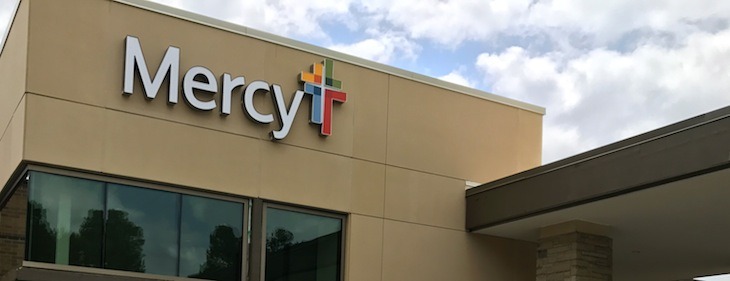Mercy hospitals in Fort Smith, Northwest Arkansas provide nursing grant details
by June 6, 2024 3:35 pm 1,187 views

The Mercy hospital systems in Fort Smith and Northwest Arkansas received just under $3.2 million from a more than $20 million statewide grant program to partner with a university and college to increase nursing education offerings.
Through the Arkansas Linking Industry to Growing Nurses (ALIGN) Program, the Arkansas Office of Skills Development recently awarded $20.4 million to 19 Arkansas two- and four-year colleges and universities. Funding for the ALIGN grants is through the federal America Rescue Plan Act of 2021 and must be used by the end of 2026. No member of Arkansas’ Congressional delegation voted for the federal legislation.
Mercy Fort Smith is working with the University of Arkansas at Fort Smith (UAFS), and Mercy Northwest Arkansas partnered with Northwest Arkansas Community College (NWACC) on boosting nursing education programs. NWACC directly received $2.11 million and UAFS received $2.033 million from the ALIGN program. Mercy received “almost $3.2 million” in its participation with the two higher education institutions, according to the hospital system.
“Receiving these grants is a significant step forward in addressing the nursing shortage that impacts not just our hospitals, but the entire state of Arkansas,” Ryan Gehrig, president of Mercy Arkansas, said in a statement. “These resources will enable us to enhance our nursing programs, provide critical hands-on training and ultimately ensure that our communities continue to receive high-quality care.”
FUNDING PLANS
Each Mercy hospital plans for funding to go toward supporting additional clinical educators, managers, clinical instructors and nursing leaders to expand clinical rotations. Scholarships and educational opportunities (including paid summer externships) will be created in conjunction with UAFS and NWACC.
According to a UAFS statement about the grants, clinics, hospitals and other healthcare operations in Fort Smith metro need more than 200 nurses. UAFS also said the U.S. Bureau of Labor Statistics estimates that U.S. healthcare will face a shortage of 1.4 million nurses by 2029. UAFS also said 50% of registered nurses are approaching retirement age.
Jacqueline Truesdale, chief nursing officer at Mercy Northwest Arkansas, said expanding education opportunities for current and future nurses is a critical part of developing a nursing pipeline to help address the ongoing shortage.
Mercy Arkansas’ education goals include training an estimated 25-50 additional nursing students and employed nurses per year with clinical education, enabling nursing schools to increase students by an estimated 10%, upskilling an estimated 25 employed nurses to the next professional level each year, and educate an estimated five employed nurses to become adjunct faculty and clinical preceptors for partner nurse training programs.
‘ADDITIONAL RESOURCES’
Funding also will be used to purchase high-tech simulation equipment and virtual reality devices for simulation labs at both hospital locations. In Fort Smith, funding will provide enhancements for Mercy’s Dedicated Education Unit (DEU), including computers and audio-visual equipment. The unit opened in January and will expand in August for the fall 2024 semester to include additional students as well as evening and weekend options. Mercy NWA will create its own DEU through the grant funding.
“Hands-on training provides the best opportunity for our nurses to learn and expand their skills,” said Stephanie Whitaker, chief nursing officer at Mercy Hospital Fort Smith. “This was the driving force behind creating our DEU, which we are eager to expand. We also look forward to implementing additional resources to help train our current nurses as well as our future nurses through the DEU, simulation lab and more.”
Training also will be available for nurses at Mercy’s rural hospitals in Berryville, Booneville, Ozark, Paris and Waldron.
St. Louis-based Mercy has more than 900 physician practice locations and outpatient facilities, more than 4,500 physicians and advanced practitioners, and 50,000 employees in Arkansas, Kansas, Missouri and Oklahoma.
